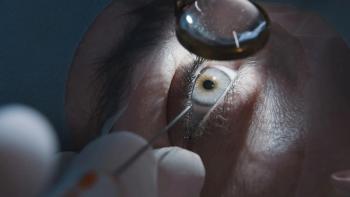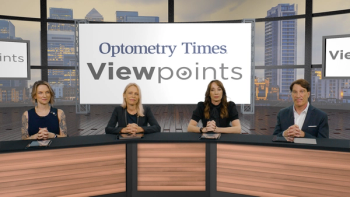
Study finds extended benefits when treating TED patients with TEPEZZA
The high-level analysis found in treatment follow-up that 82% of patients administered with TEPEZZA did not report needing any additional thyroid eye disease treatment for nearly 2 years.
New data from a study of TEPEZZA (teprotumumab-trbw, Amgen) indicate the long-lasting effect of the treatment in patients with thyroid eye disease (TED).
According to the company’s press release, the high-level analysis found that 82% of TEPEZZA-treated patients in the follow-up did not report needing any additional TED treatment, that is, steroids, surgery, or an additional course of TEPEZZA if 2-mm proptosis improvement from baseline was not maintained, for nearly 2 years following TEPEZZA therapy (99 weeks). The company notes that this is the longest follow-up to date.
Of the 106 reporting patients, 18% (19/106) received additional medication, that included either systemic steroids or teprotumumab and/or remedial periocular surgery as of 99 weeks after the therapy.
The full study findings were scheduled to be released at ENDO 2024 running from June 1-4 in Boston, and published in the journal Thyroid.
Some additional reported findings were that the patient response to TEPEZZA was mostly maintained 51 weeks after therapy at week 72 and was similar to week 24 results in the controlled clinical trials.
The company reported that at the end of the formal follow-up on week 72, most participants maintained the following results: response for composite outcome (51/57, 89.5%), clinical activity score (52/57, 91.2%), diplopia (35/48, 72.9%), proptosis (38/56, 67.9%), and overall response (37/56, 66.1%), respectively.
The adverse effects observed in this follow-up were consistent with the drug’s known safety profile. Four cases of hyperglycemia were newly reported during the follow-up; three of which were resolved and one was ongoing as the patient discontinued the study due to a flare. Three cases of hearing impairment were newly reported; two of which were unrelated to TEPEZZA.
Treatment importance
“TED is a lifelong autoimmune disease that can worsen or flare, regardless of how it has been treated. This is the case for many autoimmune diseases,” said George Kahaly, MD, PhD, professor of medicine and endocrinology at Johannes Gutenberg University Medical Center in Mainz, Germany.
He continued, “Given the enduring nature of TED, it is important to understand whether patients who are treated with a full course of teprotumumab (8 infusions) can expect to experience lasting improvements in signs and symptoms, like eye bulging and double vision.”
Due to the longevity of TED, Kahaly added, it was important to look at longer-term results after treating patients with teprotumumab. He and his colleagues sought to answer whether or not patients with TED would see sustained improvements in proptosis and diplopia.
In addition, these findings are important to physicians considering treatment for their patients, with TED, in that they now have longer-term data to support the use of teprotumumab in appropriate patients, Kahaly said.
Newsletter
Want more insights like this? Subscribe to Optometry Times and get clinical pearls and practice tips delivered straight to your inbox.













































